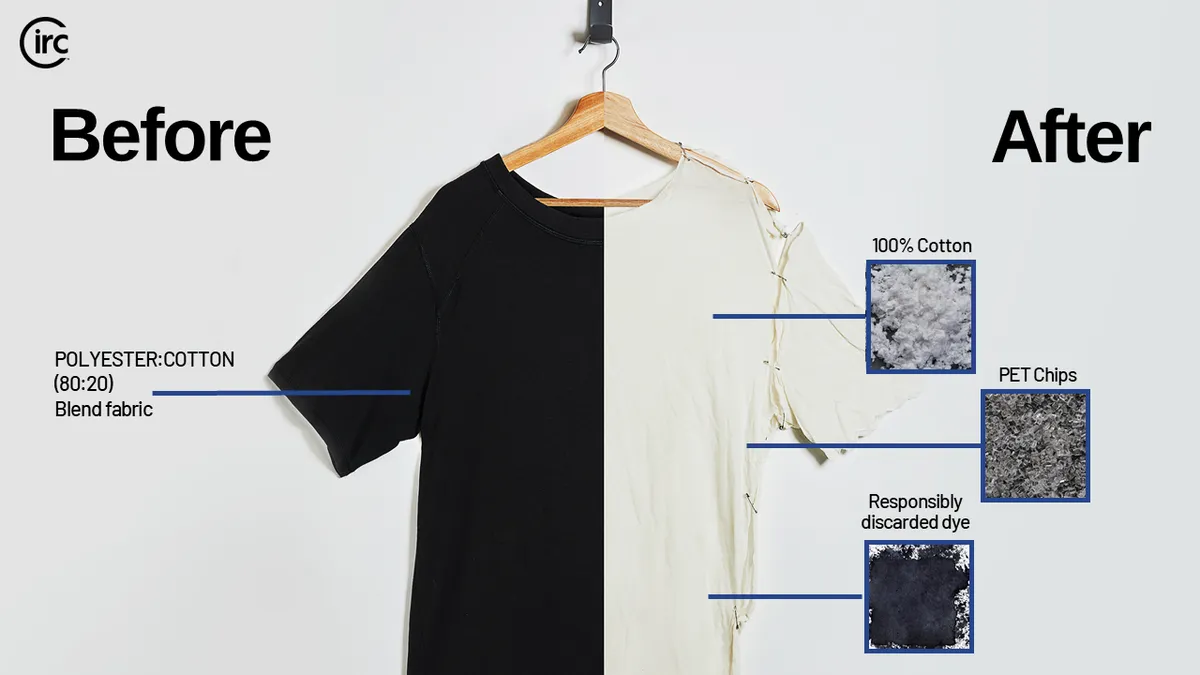Dive Brief:
- In a push toward improving the environmental impact of the industry, fashion powerhouse and Zara owner Inditex has invested in circular textile company Circ, according to a press release shared with Retail Dive.
- The Series B funding round raised over $30 million for Circ, and was led by Bill Gates-founded Breakthrough Energy Ventures. In addition to participation from Inditex, textile company Milliken & Company and investment firm Lansdowne Partners also contributed to the funding.
- Circ’s technology creates new materials from textile waste by breaking them down to the raw materials they were made from, with the goal of replacing the need for virgin materials.
Dive Insight:
Textile waste continues to be a massive problem for the environment, and Inditex appears to be aware of that issue since one of its most popular brands Zara releases 500 new designs a week, according to Business of Fashion.
CEO Óscar García Maceiras said in a statement that this was Inditex’s first venture investment in a clean technology company, adding, "In partnership with Circ, we are committed to promoting the transformation of the entire fashion industry. We look forward to contributing our knowledge and corporate capabilities to Circ's rapid success and achievement of industrial scale."
Circ’s patented technology is focused on separating polyester and cotton blended textile waste to be reused for new products. Its website states that it aims to eliminate the need for raw materials for clothing.
Inditex and Breakthrough Energy Ventures aren’t the only ones seeing potential in this arena. Goldman Sachs Asset Management led an investment of $100 million in recycled cotton company Recover last month. Recover is focused specifically on creating recycled cotton fibers and blends for new apparel from textile waste.
A majority of textile waste in the U.S. is from apparel, contributing to 11 million tons of textile waste put into landfills just in 2018, according to data by the United States Environmental Protection Agency. Apparel manufacturing as a whole is under increasing scrutiny for both environmental impact and worker safety concerns, causing policymakers to get involved.












